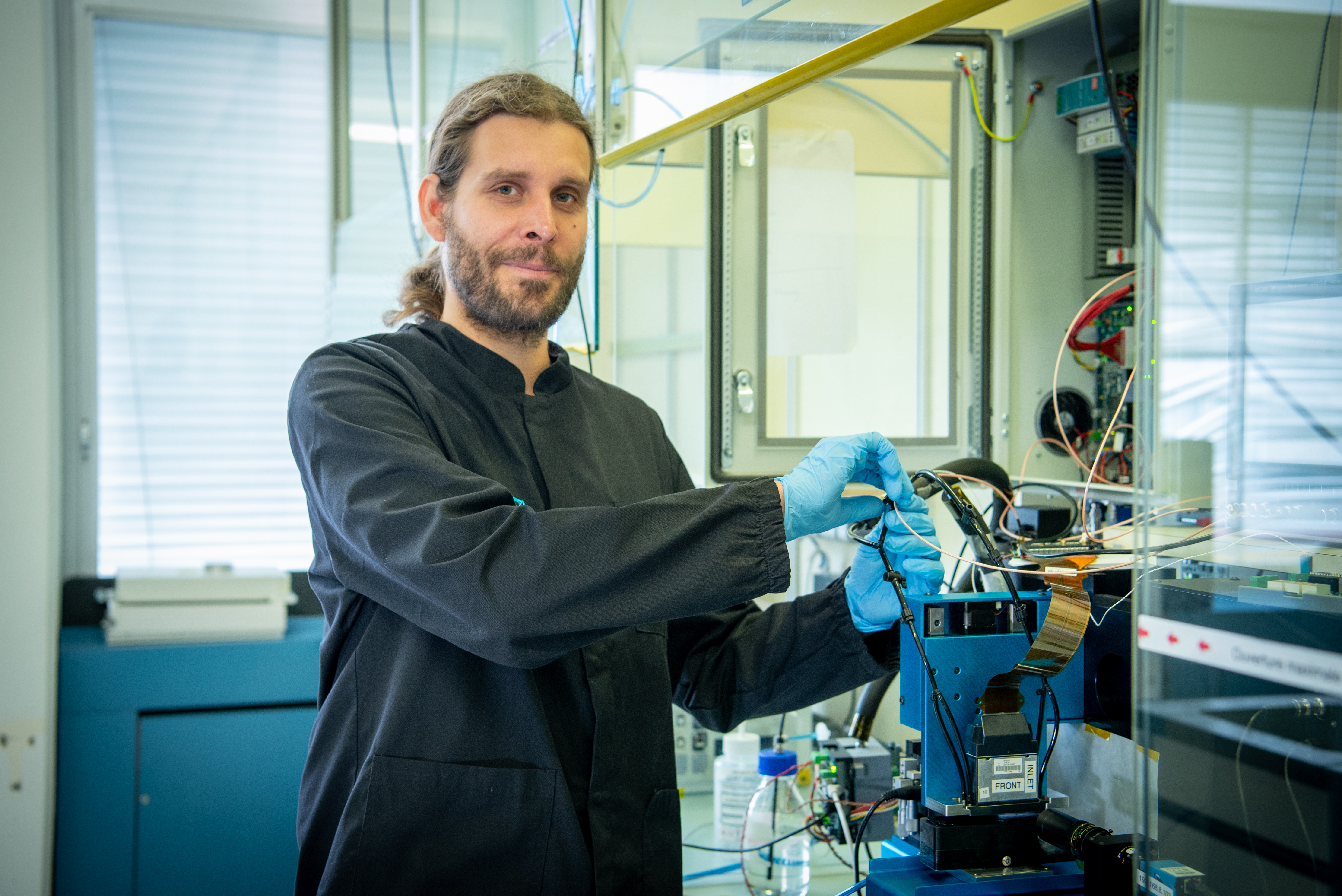From development to production
Born and raised in the Oberwallis region, Sebastian Filliger began his studies of mathematics at the ETH Zürich. A year and a half later, realizing he had had enough of theory, he decided to focus on applied science. “I wanted to work on concrete projects,” he recalls. This led him to apply for an internship at the Fribourg School of Engineering and Architecture (HEIA-FR).
His arrival in Fribourg was facilitated by a fortunate misunderstanding. “The bridge year program was in the making. The head of the program accepted my application, thinking I was already enrolling for it. When he realized my internship was actually starting a year before the launch, I was placed alongside apprentices in IT, electronics and electrical construction.” This internship was a turning point, allowing Sebastian Filliger to discover not only electronics, but also the French language. After that, he went on to complete his Bachelor’s studies in electrical engineering at the HEIA-FR.
Plunged into the world of inkjet
Mr. Filliger’s first contact with inkjet research at the iPrint institute came in the context of a semester project. He would later work part-time at iPrint while completing his HES-SO Master’s degree in Engineering. “It is very hard to imagine the reality of industrial inkjet applications if you are not actually involved. Those first three years at iPrint were highly instructive. So much of what is done in the inkjet domain has to be learned by doing.” He went on write a Master’s thesis on problem identification measures for injection systems.
Mr. Filliger’s work has been so valuable that it led iPrint to set up a research axis on measurement systems. “Initially I worked alone, then in a group. Our aim was to make measurements that help identify common problems in inkjet systems. Over the years we successfully carried out projects with numerous industrial partners,” he says proudly. More recently, Mr. Filliger’s role shifted towards team management as well as researching improvements in detection techniques and expanding the possibilities of measurement.
Experimentation and interdisciplinarity
The inherent interdisciplinarity of inkjet technology has always fascinated Sebastian Filliger. Analyzing physical phenomena and breaking down technical barriers are passions and skillsets that he continues to cultivate as he enters the next chapter in his career. “In a research institute such as iPrint, we initiate a lot of development. This means laying the foundations and proving that systems work as intended before passing the baton to an industrial partner. At Polytype, I will enjoy being able to concentrate on the latter stages of this process, leading to the creation of finished products.”
